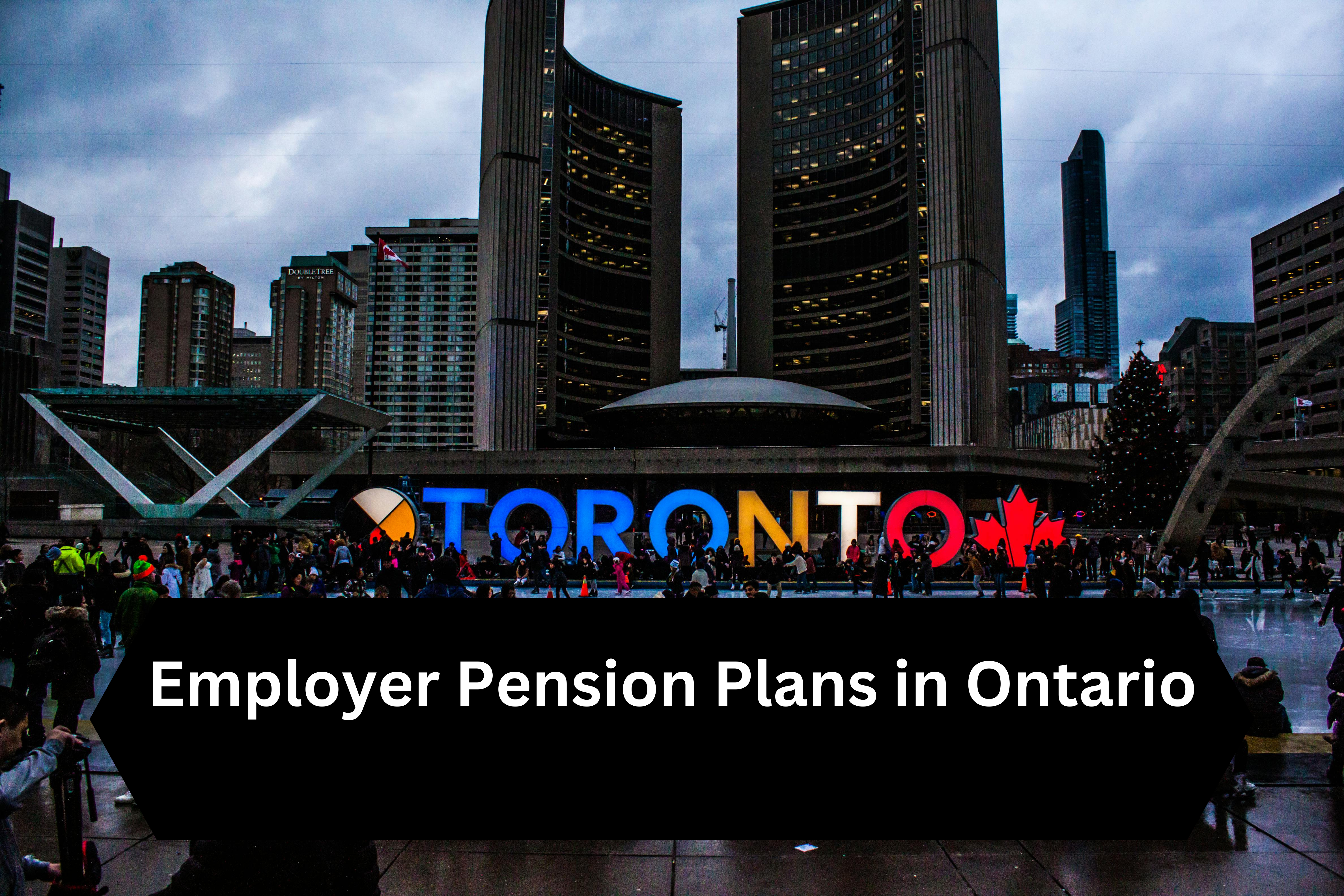Ontario Pension Dispute Resolution (Canada)

Pensions are meant to give Canadians peace of mind in retirement, but what happens when things don’t go as planned? Whether it’s a miscalculation of your benefits, a denied claim, or confusion about your plan’s rules, pension disputes can be stressful and confusing.
In Ontario, there are specific laws and procedures in place to help retirees and workers resolve these issues—but navigating them isn’t always straightforward.
Why You Should Read This Guide
If you’re a Canadian retiree or employee relying on your pension, understanding your rights is crucial. This guide will walk you step by step through the pension dispute resolution process in Ontario, from identifying common problems to escalating complaints with the Financial Services Regulatory Authority of Ontario (FSRA) or taking legal action. By the end, you’ll feel confident about protecting your pension, knowing exactly where to turn for help, and avoiding common mistakes that can delay or reduce your benefits.
Whether you’re currently facing a dispute or just want to be prepared for the future, this guide is your roadmap to ensuring your pension works for you, not against you.
Types of Pension Disputes
As someone who’s been living in Ontario for decades and planning carefully for retirement, I’ve learned that pension disputes aren’t as rare as we might hope. In fact, many retirees and soon-to-be retirees face disagreements that can feel stressful and confusing.
Disagreements Over Pension Benefits
Sometimes, the amount you’re supposed to receive doesn’t match what your plan administrator calculates. For example, a friend of mine recently discovered that her employer’s calculations didn’t fully account for her years of service before a company merger. This kind of discrepancy can affect your monthly retirement income significantly.
Errors in Pension Calculations
Even with detailed records, mistakes happen. It could be as simple as miscalculating your credited service or overlooking overtime pay in defined benefit plans. In Ontario, pension plans must comply with the Pension Benefits Act (PBA), which means administrators are legally obliged to correct errors once they’re identified.
Denied Pension Claims
Sometimes, your claim may be denied outright, especially if the plan administrator believes certain eligibility criteria weren’t met. I remember attending a community seminar in Toronto where a retiree had to appeal the denial because her late application was actually caused by misleading information from HR years earlier.
Employer vs. Pension Plan Administrator Conflicts
It’s also common to see tension between what an employer promises and what the pension plan delivers. A colleague of mine faced this when his employer promised a retirement lump sum that wasn’t fully documented in the plan. Resolving these conflicts usually requires persistence and sometimes external guidance.
Survivor or Spousal Pension Disputes
Disputes aren’t just for retirees themselves, they can affect surviving spouses or dependents. Ontario law provides specific entitlements to spouses under the PBA, but sometimes administrators misinterpret these rules, leading to disputes that require formal resolution.
Key Ontario Pension Laws and Regulations
Understanding the rules behind pensions is key. Living in Ontario, I’ve found that knowing the legal framework gives you more confidence when dealing with disputes.
Ontario Pension Benefits Act (PBA) Overview
The PBA governs most private-sector pension plans in Ontario. It sets rules for how pensions must be administered, how benefits are calculated, and the rights of plan members. If your pension administrator doesn’t comply, you have a legal framework to back you up.
Federal vs. Provincial Pension Rules
Some Canadians have pensions regulated federally, like those in banks or telecommunications, but most Ontario-based plans fall under the provincial PBA. This distinction matters because it determines which regulator you turn to for help. For Ontario pensions, that’s the Financial Services Regulatory Authority of Ontario (FSRA).
Understanding Plan Documents and Member Statements
I can’t stress enough how important it is to carefully review your pension plan documents. Your plan booklet, annual statements, and any amendment notices are your best allies.
They spell out eligibility, formulas, and any assumptions the administrator uses. Keeping copies of these documents saved digitally and on paper can prevent headaches down the road.
Your Rights Under Canadian Pension Law
As an Ontario retiree, you have the right to:
Receive clear statements about your pension benefits.
Ask questions and receive written responses from your plan administrator.
Challenge decisions you believe are incorrect or unfair.
Escalate disputes to FSRA or even to court if necessary.
Knowing these rights gives you confidence. Personally, I always remind friends at my local senior center that pensions aren’t just numbers—they’re a contract protected by law.
Steps to Resolve a Pension Dispute
I remember the first time I had to help a neighbour with a pension dispute, it was confusing at first, but breaking it into steps made it manageable. Here’s a practical roadmap based on what I learned living here in Ontario:
Step 1: Review Your Pension Plan Documents
Start by understanding exactly what the plan promises. Look for details on benefit calculations, eligibility dates, and your rights. A close review can often reveal simple mistakes or misunderstandings.
Step 2: Contact Your Plan Administrator
Reach out directly. Sometimes a phone call or email is all it takes to clarify a calculation or correct missing information. I’ve seen cases resolved this way in my local seniors’ association meetings.
Step 3: File a Formal Complaint
If your concern isn’t resolved informally, file a written complaint with your plan administrator. Include supporting documents and clearly outline the issue. Keep a copy for yourself, it’s your paper trail.
Step 4: Request Internal Review or Mediation
Many plans offer an internal review process. Some also provide mediation to help resolve disputes without going to court. Mediation can be surprisingly effective because it’s collaborative rather than confrontational.
Step 5: Escalate to FSRA
If the plan administrator doesn’t resolve the issue, you can file a complaint with the Financial Services Regulatory Authority of Ontario (FSRA). They oversee pensions in Ontario and can intervene when plans fail to meet legal obligations.
Step 6: Legal Action in Court (if needed)
As a last resort, you may take legal action. It’s usually wise to consult a pension lawyer first. I’ve attended community legal information sessions in Ottawa where lawyers explained that even a small dispute could be resolved more efficiently with proper legal guidance.
Alternative Dispute Resolution Options
As someone who’s been navigating retirement and pension plans here in Ontario, I can tell you firsthand that disputes over pension benefits can be stressful, but they don’t always have to end up in court. Thankfully, there are alternative dispute resolution (ADR) options that can save time, money, and emotional stress.
Mediation and Negotiation
Mediation is a structured process where an independent mediator helps both parties, usually you and your pension plan administrator, come to a mutually acceptable solution. It’s less formal than court, and it gives you a chance to explain your side without the heavy costs of legal action. Negotiation, on the other hand, is more direct: you can often resolve small discrepancies by simply talking to your plan administrator or HR department.
Arbitration
If mediation doesn’t work, arbitration is another option. Here, an independent arbitrator reviews the facts and makes a binding decision. This is more formal than mediation but still generally faster and cheaper than going to court.
Ombudsman Services
Ontario doesn’t have a provincial pension ombudsman per se, but the Financial Services Regulatory Authority of Ontario (FSRA) acts as a neutral body for complaints. The FSRA can review your case and facilitate resolution without legal proceedings. From personal experience, submitting a complaint through FSRA feels reassuring because they’re regulated and knowledgeable about Ontario pension law.
Why ADR Matters
Using these alternatives early can prevent prolonged delays. As a senior, I value processes that respect my time and reduce stress—especially when I’d rather be enjoying retirement than dealing with paperwork disputes.
Filing a Complaint with FSRA
If negotiation or mediation doesn’t resolve the problem, the FSRA is your go-to authority in Ontario. The FSRA oversees pension plans in the province and ensures administrators comply with the Pension Benefits Act (PBA).
What FSRA Does
FSRA investigates complaints from plan members like you and me. They ensure pension plans are properly administered and can enforce corrective action if needed. Their mandate is to protect pensioners’ rights, which is crucial for seniors depending on a steady income from their retirement plan.
How to File a Complaint
Gather Documentation – Collect your pension statements, plan documents, correspondence with the administrator, and any evidence of discrepancies.
Submit Online or by Mail – FSRA offers an easy online complaint form on their website. Seniors can also send documents via mail if that’s more comfortable.
Provide Clear Details – Explain the issue concisely: what happened, what you expected, and what outcome you’re seeking.
Expected Timeline
FSRA strives to respond promptly, but resolution times can vary. Usually, you’ll get an acknowledgment within a few weeks, and a detailed response or recommendation within a few months. It helps to stay organized and follow up politely.
From my experience, having FSRA involved adds credibility to your case. Plan administrators are more likely to act quickly when an official complaint is on record.

Legal Representation in Pension Disputes
Sometimes, even with ADR and FSRA involvement, you may need legal help. Pension law can be complex, and having a lawyer experienced in Ontario pensions can make a huge difference.
When to Hire a Lawyer
If your pension plan refuses to correct errors after FSRA involvement
If the dispute involves large sums or spousal survivor benefits
If legal deadlines are approaching
Choosing a Pension Law Specialist in Ontario
Look for lawyers who specialize in employment and pension law. Associations like the Ontario Bar Association provide directories of lawyers by specialization. I personally recommend interviewing a couple to ensure they understand pension regulations under the Pension Benefits Act and have experience with FSRA cases.
Costs and Funding Options
Legal fees can be a concern for seniors. Some lawyers offer contingency fees (payment only if you win) or limited initial consultations. Legal Aid Ontario sometimes assists retirees with limited income, and certain advocacy groups, like the Canadian Pensioners Concerned, can provide guidance or referrals.
My Advice
Don’t wait until the last minute. Understanding your legal rights early, keeping documentation, and exploring ADR first can prevent escalation. A proactive approach gives peace of mind, knowing you’re protecting the retirement you’ve worked for.
Common Challenges and Pitfalls
As someone who has spent decades contributing to my workplace pension here in Ontario, I’ve come to realize that navigating pension disputes can be more complicated than I initially thought. Even with years of planning, many retirees run into unexpected hurdles. Here are some challenges I’ve personally observed, along with tips to avoid them:
Delays in Processing Claims
One of the most frustrating issues is simply the wait. Pension administrators often have large volumes of requests, and a simple clarification can take weeks. In my experience, staying proactive—calling regularly and keeping a record of every conversation—can make a huge difference. The Financial Services Regulatory Authority of Ontario (FSRA) recommends keeping detailed notes of all correspondence when disputes arise, which can speed things up if escalation becomes necessary.
Miscommunication with Pension Administrators
Sometimes, your plan administrator may use technical jargon or provide incomplete explanations. I once had a case where the amount listed on my statement didn’t match my expectations, and it took multiple calls to clarify. Keeping a copy of your plan documents and previous statements handy helps you ask precise questions and prevents misunderstandings.
Understanding Pension Calculations
Pension math isn’t always straightforward. Defined benefit plans, for example, rely on formulas involving years of service, average earnings, and accrual rates. It’s easy to misinterpret these numbers. I’ve found the Canadian Association of Pension Supervisory Authorities (CAPSA) guidelines very helpful, they provide plain-language explanations of how different types of pensions are calculated.
Avoiding Common Mistakes
A big mistake I’ve seen among friends and neighbours is assuming silence from a pension plan means everything is fine. Never hesitate to double-check your statements annually, especially if there’s a change in employment or marital status. Also, don’t ignore deadlines. Ontario pension law has strict timeframes for filing disputes or complaints with FSRA. Missing these can seriously limit your options.
Tips for Canadians to Protect Their Pension Rights
Having gone through some of these challenges, I’ve picked up a few key practices that every retiree, or anyone approaching retirement should follow. These small steps can save a lot of headaches down the road.
Keep Records and Documentation
I maintain a personal folder with every pay stub, pension statement, and correspondence from my employer or plan administrator. FSRA and pension law experts stress that this is critical in case you ever need to file a dispute. Digital copies are great, but I still like having a paper backup.
Understand Your Plan Statement
Take the time to read and understand your annual statement. Know how your pension accrues, what your survivor benefits are, and how contributions are calculated. If you’re unsure, FSRA offers online guides, and many Ontario credit unions and senior centres provide workshops to help seniors interpret their pension statements.
Ask the Right Questions Early
Don’t wait until you retire to clarify uncertainties. Ask about early retirement options, survivor benefits, and what happens if you leave the company before qualifying. Early clarification often prevents disputes later. I’ve personally found that even a brief conversation with HR or the plan administrator can answer questions I didn’t know I had.
Stay Informed About Regulatory Changes
Pension rules and protections evolve over time. FSRA, CAPSA, and even the Government of Ontario’s Pension Benefits Act website are excellent resources to stay updated. Staying informed ensures that you’re aware of your rights and the most effective ways to assert them.
Seek Professional Advice When Needed
Sometimes, it’s worth consulting a pension lawyer or financial advisor, especially if your dispute is complex. Ontario has lawyers specializing in pension law who can guide you through filing complaints, mediation, or court action if necessary. For seniors on a budget, legal aid services or advocacy groups like CARP (Canadian Association of Retired Persons) can also provide guidance.
Living through these challenges myself, I’ve learned that being proactive, organized, and informed is the best defense against pension disputes. It’s not just about protecting your money, it’s about securing peace of mind for your retirement years.




